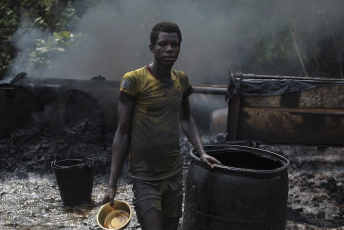This brief draws on field research conducted on trafficking in persons in four protracted conflicts in Africa – Central African Republic, Libya, Nigeria and Somalia – to explore what constitutes realistic and effective responses to trafficking in persons in conflict contexts. It argues that counter-trafficking efforts should be part of broader work to enhance community resilience to organised crime and to address long-standing needs, while responses which rely on the state, or approach the issue through a criminal lens, should be treated with caution.
About the authors
Lucia Bird is a senior analyst at the Global Initiative Against Transnational Organized Crime. Previously she worked as legal and policy adviser to the Planning and Development Department of the Punjab Government, Pakistan, and the Ministry of Finance, Ghana working on governance, institutional reform and strengthening policy processes, contracting and legislative practices.
Tuesday Reitano is deputy director of the Global Initiative Against Transnational Organised Crime. She previously worked for 10 years in the UN System, including at the UN Office on Drugs and Crime, and the UN Development Programme, in particular focusing on issues of governance, justice and conflict transition in Africa.
Photo © Albert Gonzalez Farran/UNAMID







